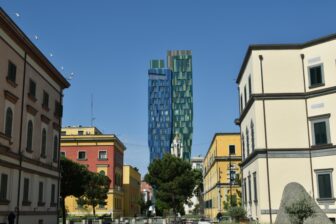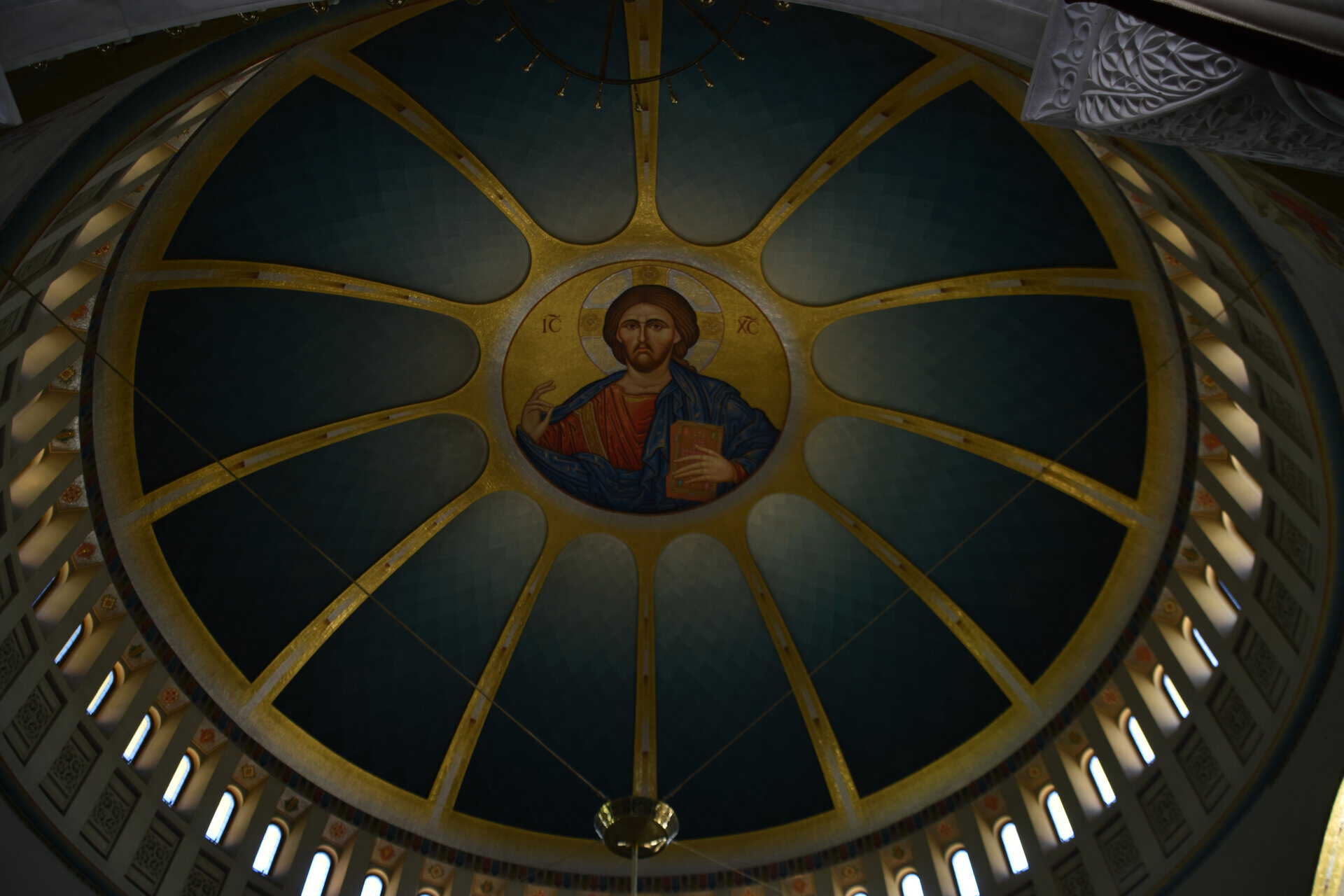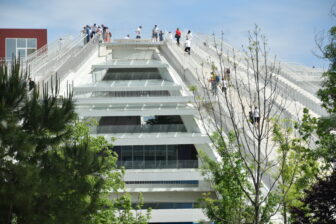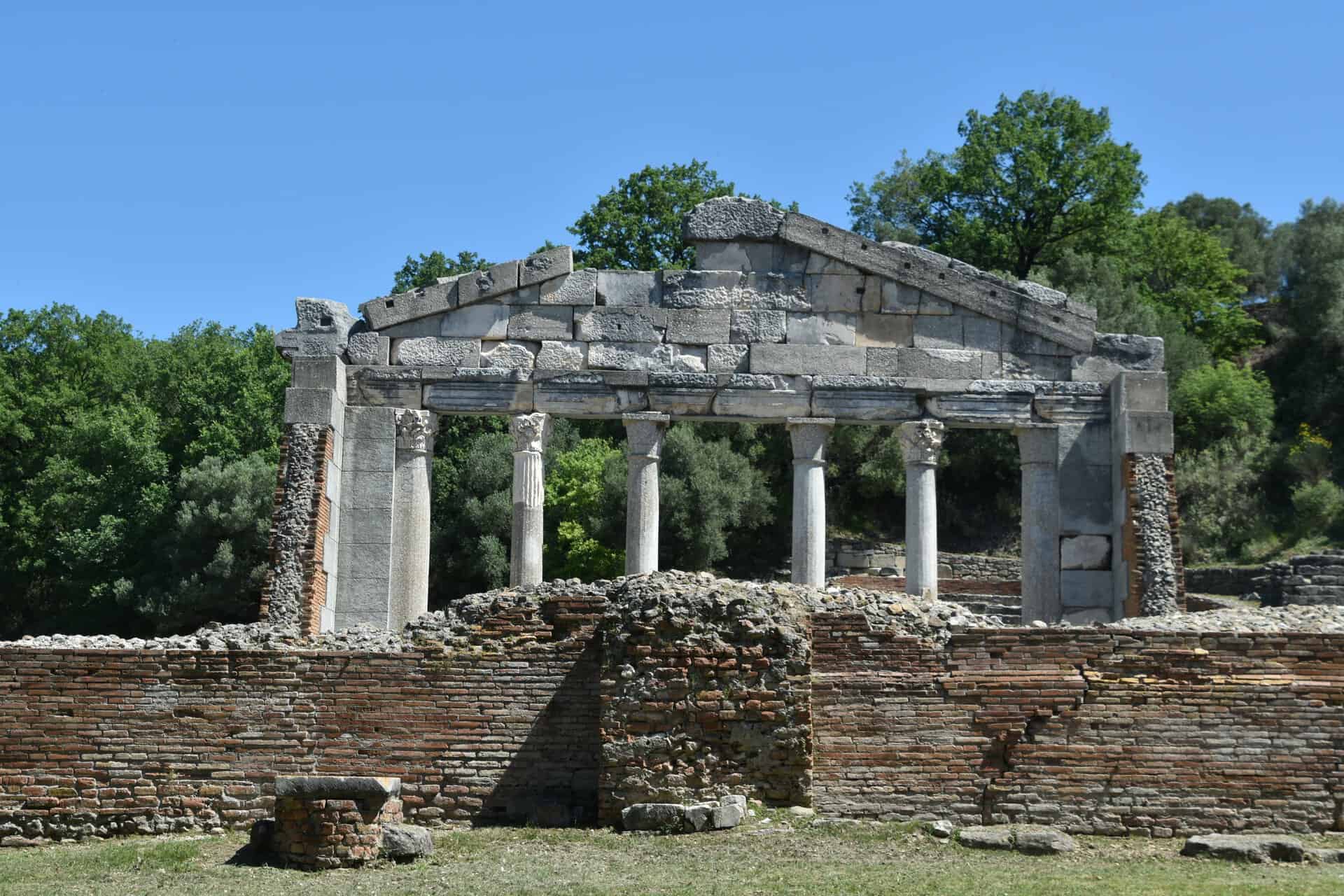
[Apr. 2024] During our tour of Albania, we visited the Apollonia ruins.
This ancient town was built by Greeks from Corinth in the 6th century BC, and is one of the 30 cities in the world dedicated to the sun god Apollo.
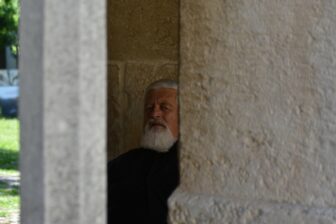
Speaking of Corinth, it is the area around the Corinth Canal, where we went on summer vacation the previous year.
It was a powerful city-state, though it is a quiet place now.
After coming under the control of Rome, it flourished as an academic city, and Julius Caesar sent his nephew Octavius (later Emperor Augustus) here to study.
After that, there were a series of natural disasters, and by the 5th century AD it had become a small village.
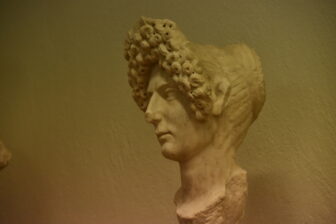
Among these ruins are the remains of a Byzantine monastery, which has been turned into a museum.
Despite that, we saw a monk, so it may still be an operating monastery.
Of all the things I saw, the most interesting one was the statue of a woman’s head.
It’s a hairstyle reminiscent of women in 19th century European period dramas.
Our guide, Giorgio, told us that when French archaeologists excavated the ruins, they brought these female figures back to France, and they caught the attention of women at the time.
It was apparently a trend to imitate ancient hairstyles on those days.
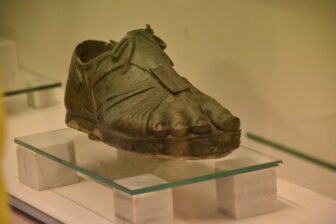
I never knew that.
Also, among the marble statues, there was one stone statue, which was an Amazon.
Expanding on the story of the Amazons who were said to be a brave and courageous female unit, we learned that many Greek soldiers were gay.
This was because soldiers who lost their lovers became ferocious with anger, and this tendency was particularly strong in Sparta.
There were also heavy copper shoes in the museum.
It is thought that these were used to make footsteps sound louder to make it seem like there were many soldiers.
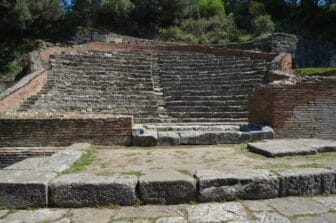
Hearing stories like these makes the archaeological museum interesting.
After the museum, we visited the ruins outside.
We saw the usual theatre ruins and temple ruins.
The ruins are relatively untouched, and according to the guidebook, they are a popular picnic spot for locals.
By the way, we stayed overnight in a town called Vlora before coming to Apollonia, and the hotel in Vlora was terrible.
Vlora is a seaside resort and is the city where Albanian independence was declared, but our hotel was not only far from the sea and Independence Square, but the elevator was broken.
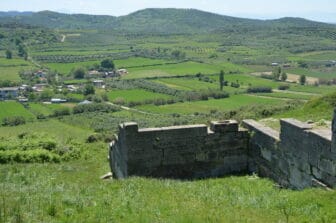
Even so, our group was assigned rooms on the sixth floor.
On top of that, the man at the reception desk seemed to have a bad attitude.
This made Giorgio furious.
After much arguing between them, we were assigned rooms on the third, fourth, and fifth floors in order of age and physical condition.
My husband and I seemed to be the younger and more energetic ones on our tour, so we were given a room on the fifth floor.
The hotel staff carried our suitcases, though.
Apparently a group that arrived after us had been assigned rooms on the sixth floor, but we later heard that they had changed hotels.

